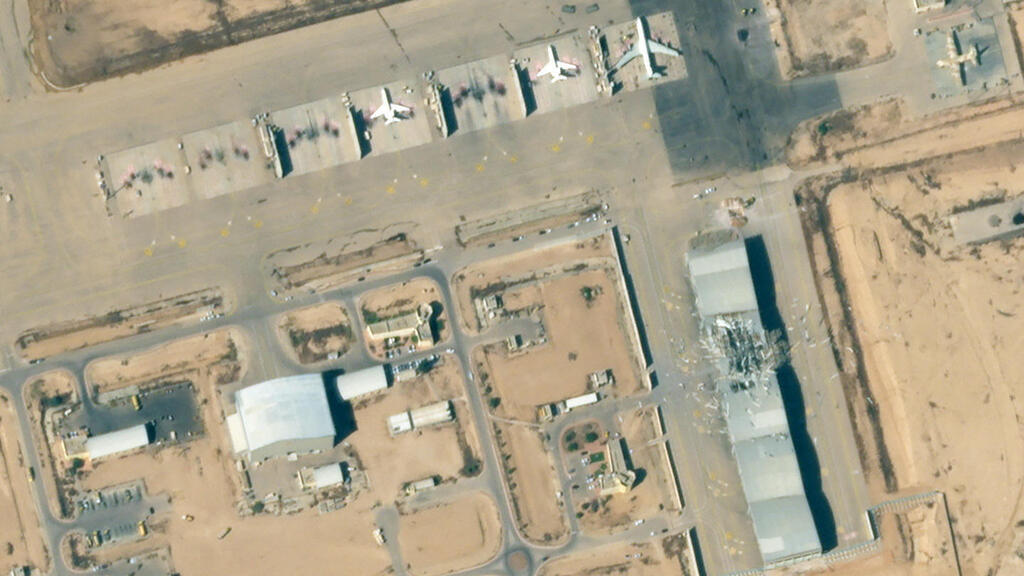Getting your Trinity Audio player ready...
Authorities announced on Monday that seven Israelis, all immigrants from Azerbaijan, were arrested on charges of espionage for Iran over the past two years, in what was described as one of the most severe security breaches in Israel's history.
They are suspected of photographing military installations, some of which were later targeted by Iran's ballistic missiles during the strike on Israel on October 1.
3 View gallery


Iranian ballistic missiles over Israeli skies during the attack on October 1
(Photo: Ahmad GjarabliI / AFP)
The Rishon Letzion Magistrate's Court revealed on Monday that the seven, all residents of Haifa and northern Israel, will be indicted on Friday. Among the suspects are a soldier who deserted from duty and two minors.
"This is one of the most serious national security cases investigated in recent years," the state prosecution said. The Shin Bet launched the investigation, with support from the police’s Serious Crimes Unit 433.
The suspects—Aziz Nisanov, Alexander Sadikov, Yigal Nisan, Vyacheslav Guschin, Yevgeni Ioffe and the two minors—were arrested on September 19 on suspicion of espionage. The indictment will include charges of collaborating with enemies of the state, which carries a potential life sentence.
Iranian ballistic missiles over Temple Mount on October 1
The suspects allegedly worked under the direction of Iranian operatives in exchange for hundreds of thousands of shekels paid in cash and cryptocurrency. "For over two years, the suspects carried out various security missions for Iranian intelligence, fully aware that they were delivering information that endangered national security and, in some cases, aided the enemy’s missile attacks," the Shin Bet and Israel Police said in a joint statement.
The suspects used advanced equipment, purchased in advance, to complete their missions under the guidance of Iranian agents. They were tasked with gathering intelligence on Israeli citizens and conducting surveillance, according to their handlers' instructions. Some were arrested while attempting to collect information on an Israeli resident near the location of the arrests. Security forces believe the Iranians intended to harm this individual.
Police Chief Superintendent Yaron Binyamin said that the suspects carried out approximately 600 missions over two years. These included gathering intelligence on sensitive sites, military bases and potential human targets, all in service of Iran’s objectives.
3 View gallery


Satellite images of the Nevatim Air Force base in the Negev showing damage to one of the hangars following Iran's October 1 ballistic missile attack
(Photo: Planet Labs Inc. via Reuters)
Binyamin explained that many of Iran’s ballistic missiles launched on October 1 targeted sites that the suspects had photographed. After an earlier missile strike in April, they were instructed to assess the damage and report on missed targets to help improve accuracy in future attacks.
Payments in cryptocurrency were processed through currency exchange shops around the country, while cash was delivered by Russian nationals who traveled to Israel. "There was a system in place," Binyamin said. "They collected dozens of documents detailing which sites to photograph, what information to gather, and how much they would be paid. A real price list.
"They would first receive the mission to photograph a base, then travel there, set up their equipment, find a vantage point, and send the photos via encrypted software to their Iranian handlers."
The suspects are connected by family ties, with two being father and son. The group's leader received the assignments through a mediator and was responsible for assembling the team. Some of the suspects are Jewish by birth, while others were granted Israeli citizenship through familial connections under Israel's Law of Return. "Their sole motive was money," Binyamin said.
The spy ring was exposed after the Shin Bet uncovered sensitive information. The suspects began targeting individuals, and the severity of their actions became clear during interrogations. "We monitored their phones, and it was evident they were driven by money. Some days, they completed up to four missions, ranging from simple to complex," Binyamin said. "This is an unprecedented event and constitutes systematic acts of terror."
The suspects were arrested while on a photography mission in southern Israel. Three were caught red-handed, which led to the arrest of the remaining four. "This was the signal to apprehend the others already under our watch," the police officer said.
The suspects’ contact with Iran was through a Turkish national, who acted as a mediator. "He received the materials from the Iranians and delivered them to Israel. He was involved in espionage cases made public in recent months," Binyamin said. Additional arrests related to this case have been made in Turkey and Azerbaijan.
Get the Ynetnews app on your smartphone:






